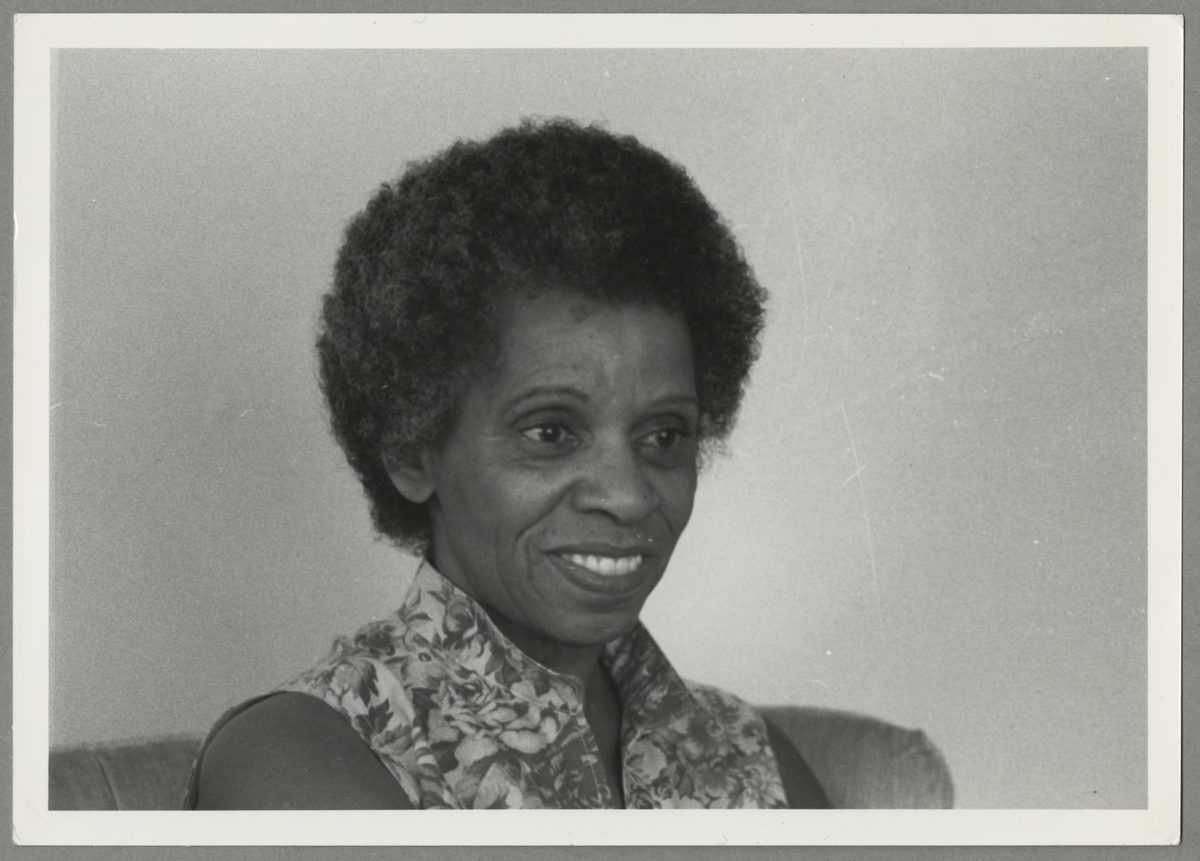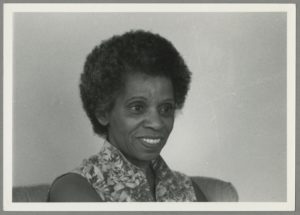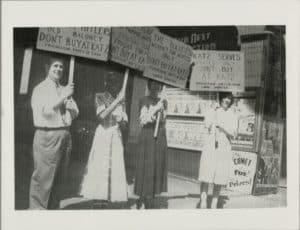This post is the tenth installment in our series highlighting African American history in the collections of the Iowa Women’s Archives. The series ran weekly during Black History Month, and will continue monthly for the remainder of 2020.
This past summer, we have seen a nationwide movement for change. In Iowa City, Philadelphia, Chicago, Seattle, and elsewhere, peaceful protests have faced backlash from citizens and the police. People seeking change today might be interested in Edna Griffin, who led a boycott of the Katz Drug Store in Des Moines, Iowa, in 1948 and pushed persistently for what she knew was right, even at personal risk. Born in Kentucky in 1909, Griffin attended Fisk University and moved to Des Moines with her husband in 1947. The Edna Griffin Papers, preserved in the Iowa Women’s Archives, include documents relating to the successful 1948 lawsuit against the Katz Drug Store – State vs. Des Moines – which are richly supplemented by Griffin’s 400-page FBI file that provides insight into an otherwise sparsely documented life of activism. You can view these documents in the Iowa Digital library.
During the 1940s, the United States remained a largely segregated country. Although Iowa had laws against segregation, they were not consistently enforced. Iowa’s first civil rights law was passed in 1884 to outlaw discrimination in “inns, public conveyances, barber shops, theaters, and other places of public amusement,” the law was rarely enforced. In 1892, the law was modified to include “restaurants, chophouses, lunch counters and all other places where refreshments are served.” Still with no practical enforcement mechanism, over the next 30 years, Iowa’s supreme court determined only three cases based on the civil rights law. Due to a strenuous effort by the Des Moines branch of the NAACP, the law was amended again in 1923 so that violations could be heard by a local magistrate rather than a grand jury.
On July 7, 1948, Edna Griffin, John Bibbs, Leonard Hudson and Griffin’s infant daughter, Phyllis, entered Katz Drug Store at the intersection of 7th and Locust streets in Des Moines. Hudson needed to make a purchase, so Griffin and Bibbs decided to sit at the lunch counter to order ice cream sundaes. A waitress came over, took their orders, then proceeded to fulfill them. In the process, “a young white man came and whispered a message into her ear” (Lawrence, 2008, p. 298). After this, the party was told that Katz’s lunch counter didn’t serve “colored” customers. The encounter resulted in a criminal case, a prolonged court battle, and a boycott of Katz Drug Store. During it all, Katz and his defenders tried to portray Griffin as disruptive and stirring up trouble rather than as a woman who had been denied her rights under Iowa law. You can read more about the Katz boycott in the article by Noah Lawrence, “Since it is my right, I would like to have it: Edna Griffin and the Katz Drug Store Desegregation Movement” published in the Annals of Iowa.
Edna Griffin’s activism eventually earned her fame and respect, but at the time, she was not universally lauded. Her FBI files, gathered between 1945 and 1967, are a testimony to the skepticism and derision she confronted on a daily basis. Only later was she recognized for her contribution to civil rights in Iowa. She was inducted into the Iowa Women’s Hall of Fame in 1985 and the Iowa African Americans’ Hall of Fame in 1999. You can also see her featured in Katy Swalwell’s 2018 picture book, Amazing Iowa Women.


